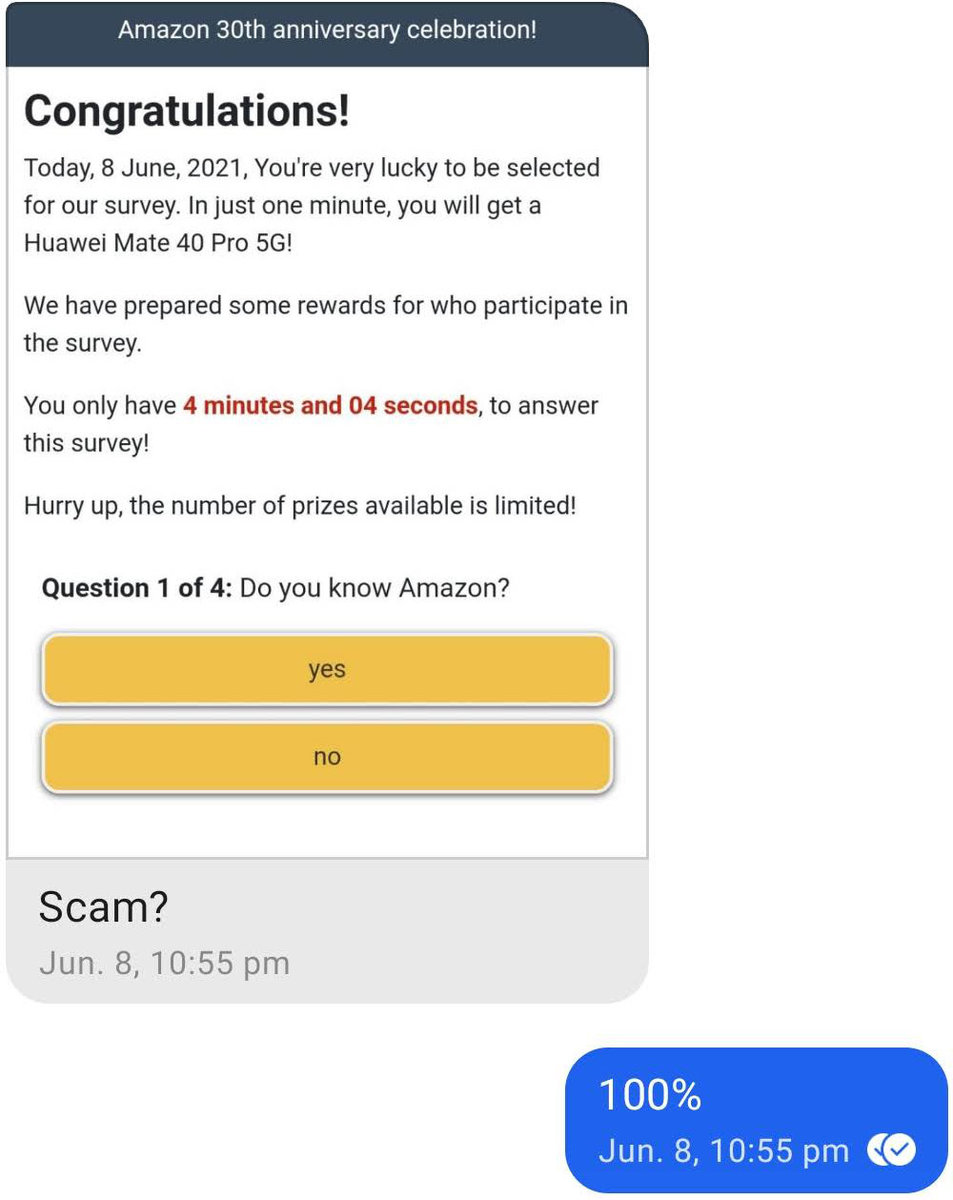
In the past few weeks, I’ve received several messages from people that consist of a screenshot of a text message or email followed by one word “Scam?”.

Screenshot of an Amazon scam text message.
Invariably, they were all scams. So, I figured it might be a good idea to make a blog post with some tips on picking out whether something is a scam or not. These can apply to various types of scams like via text, email or phone call.
Is there a time limit / sense of urgency?
One of the many tactics that scammers will use is to create a sense of urgency. When you are presented with a situation where you don’t have a lot of time to think, you usually don’t. The following examples demonstrate situations where this tactic can be used to manipulate you into doing something.
Scenario 1 – Do this thing or something bad will happen
You receive an email that says something along the lines of: “We have found suspicious activities on your amazon account, click this link to log into your account to verify your recent purchases.” That’s not good, what if someone has access to your account and is buying things with your credit card? Better log in to make sure nothing is awry.
Scenario 2 – Do this and something good will happen
Conversely to the previous scenario, you receive an email that says you have won something (like a phone from the screenshot above) BUT you only have a few minutes to collect your prize. All you need to do is fill out the simple survey and then log into your account at the end to verify. Free? Huh, well free is free, why not right?
What should you do?
You may have heard the advice “never click links in emails” but then what are you supposed to do instead? Whenever you receive emails related to logging in to any kind of account, you should always do so through a trusted link. Looking at the Amazon example above, what you should do is go directly to https://www.amazon.com and follow the log in links there. This way you know you are actually logging into Amazon and not some Amazon look-a-like site that a scammer has setup. The same would apply to things like your bank, or any other account.
Quick tips
The Golden Rule
You have probably heard this one before: “If something seems too good to be true, it probably is”. If there is one tip that you remember, make it this one. If you are presented with a situation when free stuff is dangled in front of you and it requires you to give someone something before you can get said free stuff, then it’s a scam. No, Bill Gates is not going to double the Bitcoin you send to him.
Ask Questions
This is a great one for phone scams. Scammers hate when people ask them questions. The more you use critical thinking and question things, the quicker their scam logic falls apart. Ask why, ask things that only the real caller would know.
You can also modify this one for other situations as well, such as emails or text messages. The difference is you ask yourself instead of the person on the phone. Ask questions aloud, break down the situation before doing anything. Always take time to think, being rash and jumping through hoops for someone without thinking is usually a bad idea.
Call Back
This is another useful one for phone scams. This uses the same principle as the Amazon login from earlier. If you receive a call from someone you don’t know, like your bank, and they request information from you, just say you will call them right back. One of the biggest tools that phone scams have is that spoofing phone numbers is trivial. They can make it look like you are receiving a call from your bank or from the CRA/IRS. If you are the one who calls then you can be sure that you are connected to the right place.
